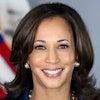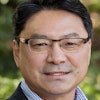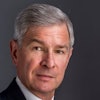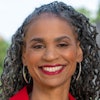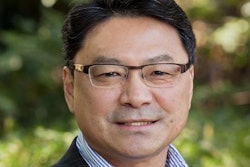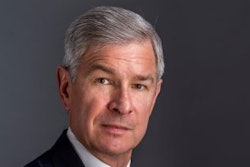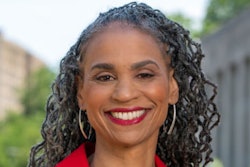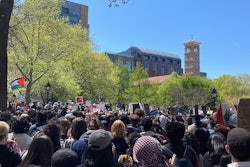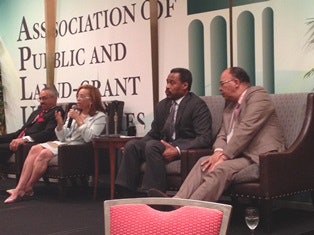 Drs. Carlton E. Brown, president of Clark Atlanta University; Debra Saunders-White, president of North Carolina Central University; John Silvanus Wilson Jr, president of Morehouse College; and Erroll B. Davis Jr., outgoing superintendent of Atlanta Public Schools, participate in a panel discussion at the HBCU Summit.
Drs. Carlton E. Brown, president of Clark Atlanta University; Debra Saunders-White, president of North Carolina Central University; John Silvanus Wilson Jr, president of Morehouse College; and Erroll B. Davis Jr., outgoing superintendent of Atlanta Public Schools, participate in a panel discussion at the HBCU Summit.
“The problem with our students is that they don’t go far enough,” said Erroll B. Davis Jr., the outgoing superintendent of Atlanta’s 48,400 person school district.
Of the 59 percent of Atlanta’s high school students who graduate each year, for example, only 35 percent enroll in college and about 17 percent of those students return to campus for their second year.
“Not only are we not doing enough,” he told attendees at the 2014 HBCU Student Success Summit sponsored by the Association of Public and Land-Grant Universities, “but it may indicate that we don’t know what we’re doing.”
That kind of tough talk from the former chancellor of the University System of Georgia is being echoed throughout the nation as the number of Black high school students attending college, and HBCUs in particular, continue to dwindle.
The numbers are even more dismal among Black boys who often go through much of their formative years in schools without ever being taught by a Black male teacher, said Davis, who added that among the 3,200 teachers in the Atlanta school system, only 566 are African-American males.
“Nationally the numbers are pathetic,” he added. “Black male teachers are invisible in our society.”
